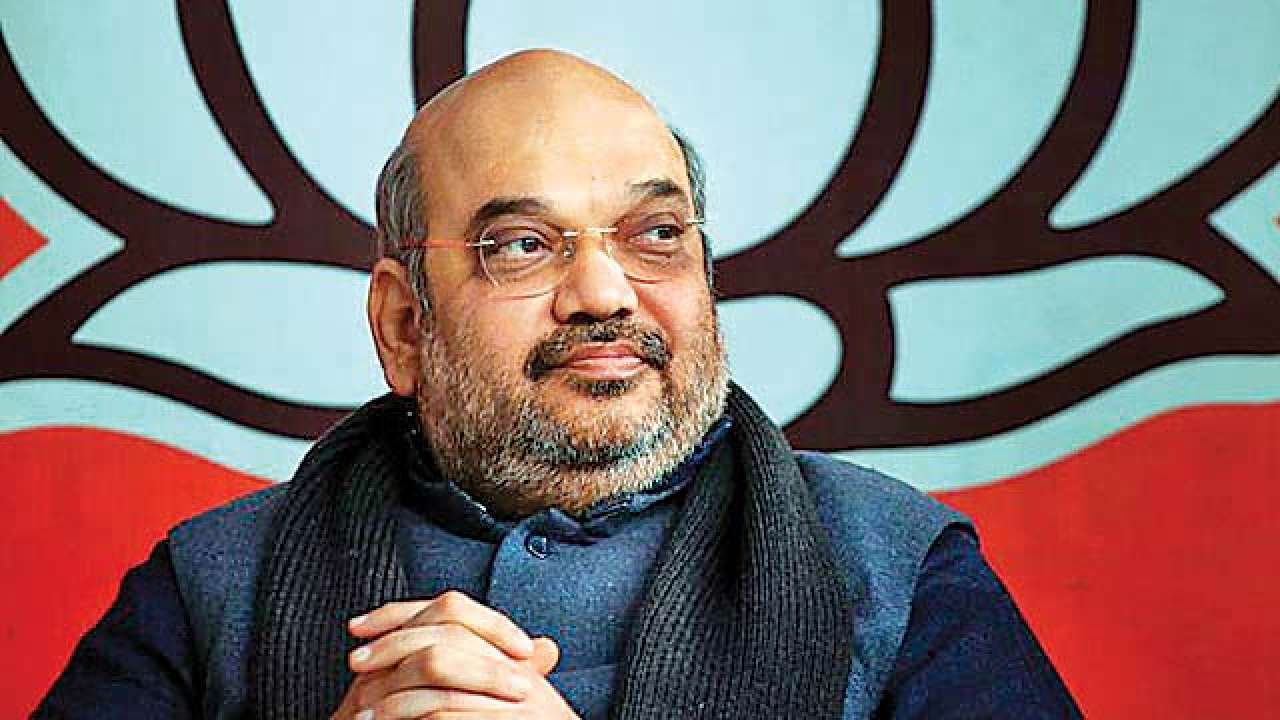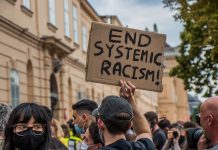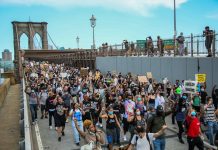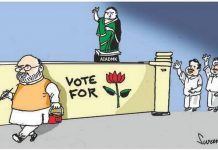Amit Shah’s political rally in Malda days after the mega opposition gathering in Kolkata asserts the birth of a culture of politics premised on allegation and counter-allegation rather than grassroots effort.
Kalyani Rastogi is an Independent Journalist and Political Commentator based in Indore.

Days after Mamta Banerjee organised a mega opposition rally in Kolkata, BJP President, Amit Shah has entered the state beginning at Malda to conduct a series of rallies for the 2019 Lok Sabha elections. The BJP had earlier planned to host a ‘Rath Yatra’ but was refused permission by Mamata Banerjee citing law and order reasons.
The BJP decided to instead conduct rallies throughout the state to mobilise votes. BJP is seeing Bengal as a problematic state and wants to make sure that through public campaigns and rallies, it can make its presence more felt in the state. The party has set itself for the target of 22 seats against the two seats that it holds at present in the state. The rally conducted in Malda where Shah addressed party workers from across the northern part of the state saw a massive participation but had followed the dispute over the state government and the Centre over the exact spot for landing his helicopter.
He told the gathering that although the Prime Minister Modi had created 129 welfare schemes, it was Mamata Banerjee who did not allow their benefits to empower the people of the state. He also alleged that the Trinamool and the Congress were forging a selfish alliance with other political parties and sustaining a culture of corrupt politics through a series of scams and syndicate raj within the state. He promised at the rally that if his party gets a chance, they would remove the Trinamool Congress and end the alleged corrupt and politicised Bengal administration.
Targeting the Opposition Rally organised by Mamta Banerjee a few days before, Amit Shah said that while they were trying to remove Modi, the BJP’s agenda was to remove poverty and unemployment from the nation. One of the most problematic statements that the BJP President made in the rally was that Buddhist, Sikh and Christian refugees in West Bengal “ need not be afraid” because the Citizenship Amendment Bill will give them citizenship.
His strategic non-utterance of Muslims shows that the statement was a nothing but a double edged sword that warns the enemy-minority. Trinamool leader Derek O’Brein said that the speech reflected the party’s insecurity and that it was low on facts and poor in taste. He also said that the party will take legal action against the BJP because Amit Shah alleged that Trinamool Congress leaders were collecting “Syndicate Tax” from the poor people in the state. The series of allegations and counter-allegations that unfolded on Tuesday during and after the rally, describe the order of the day in the political spectrum of West Bengal.
It is indeed a strange moment in the politics of Bengal that for centuries had boasted of a multi-religious ethnicity and where people belonging to the minority and the dominant faiths existed in harmony despite the tragic blow of partition politics.
The assertion of the communal forces in Bengal and the constant trial by the central government to damage this communally sensitive social fabric is nothing but a strategic intervention to create internal enmity and bloodshed. We indeed find ourselves in times of a degrading political ethos and the absence of a vibrant and grounded democratic culture that builds itself not on rhetoric by welfare. Be it the mega opposition rally of the opposition or the BJP’s rally at Malda, we see a series of allegations and counter-allegations combined with theatrical rhetoric based on communal sentiments, populist nationalism, the empty promise of delivering schemes that promise welfare and the projection of achievements in the light of the failure of the opposition.
We will continue to see such mobilization from various parties and various leaders in the run to the 2019 elections but the question remains whether as citizens of India we shall continue to remain impressed by empty slogans, the blame game between the ruling and the opposition parties and the sensationalism based on identity and caste politics?
Malda or America: Not a very different story
Continents and time zones may separate India and the United States of America but a political culture of growing hatred and intolerance bridge us in more than one way. The Trump administration has invited criticism from women’s groups, racial minorities, leftists, environmentalists, open press and native groups who see his reign as one that is against the very ethos of democracy.
From the ill treatment of refugees at the Mexico border, sustained cases of racial violence against Indians and other Asians, the stringent and partial Visa rules, the onslaught on the middle east and countries like Syria and Yemen, the unacceptable sexist jokes made on popular television shows- the present political regime of the US is surely under the scrutiny of the world. The strange political climate that America finds itself in is not much different from the toxic climate that we find in our own nation.
This racial intolerance came to light yet again as we saw videos of a young man wearing a red Make America Great Again cap staring mockingly at a native elder who was seen playing a drum while chanting. The other kids that surround the American boy are seen laughing and making fun of the chants. When the elder who belonged to the Omaha tribe was asked how he was feeling, he couldn’t hold back his tears and felt that he feared for his own and the life of his community members as the ambiance was very harsh. The behaviour of the white boys was condemned widely on social media all through the world. The native man was quoted asserting that they shouted racist words and said that it was important to build walls to keep the natives at bay. The incident that took place at the Lincoln Memorial took place during the Indigenous Peoples’ March in which the elder was taking part.
The tears of the elder remind us that America cannot become great unless its takes into account the welfare of each of the communities that reside in it. The racist assertion and supremacy with which the teenage boys rebuked the tribal man show the inherent hypocrisy of the American state that boasts of an open and democratic society but inherently supresses all those who differ.
When we look at the unfolding of events both in America’s Native Peoples’ March and at Amit Shah’s political rally staged in Malda- what becomes abundantly manifest is the fact that we build the larger public discourse on the logic of hatred. Here it is the minorities and the Dalits and there it is all those who are not whites. The time has come for the world leadership to look at other ways of mobilizing sentiments, of making way into people’s hearts and making their presence felt. How long will brute energy extinguish the flame of true political awakening? No political party is interested in asking this question but how ready are we?














